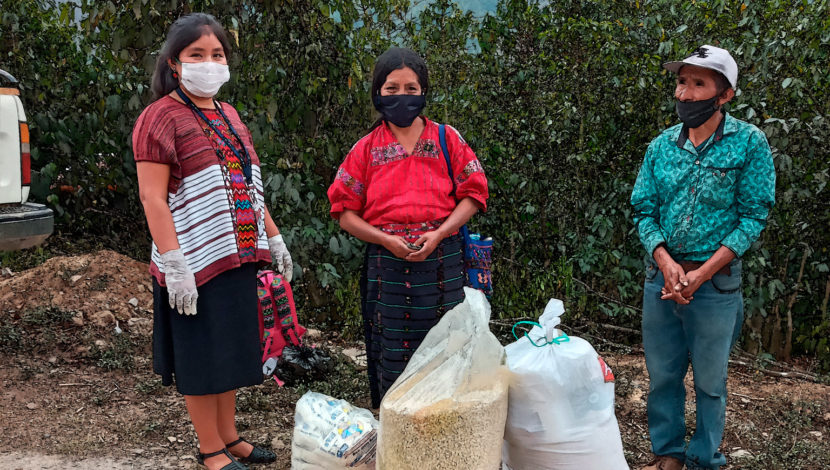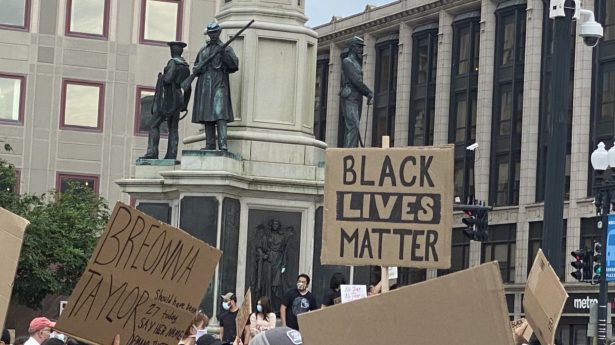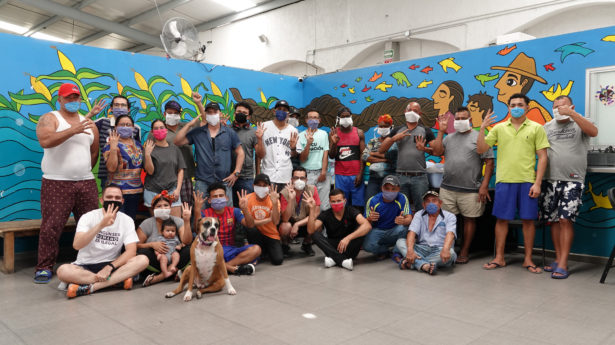The Unitarian Universalist Service Committee advances human rights through grassroots collaborations.
Supporting Systemic Change and Human Rights Through Grassroots Partnerships

By Michael Kourabas on July 20, 2020
As we do at the end of each fiscal year, we are taking some time this summer to reflect on our work and ask, what has been most impactful about our work and why? Assessing the impact of our work in this way keeps us accountable to our partners, affected communities, our supporters, and allies. It also helps UUSC be more impactful—by learning what worked well and what didn’t, we better understand what we need to improve and where to invest our resources and energy in the coming year.
One of the principles that guides our assessment process—and, in fact, in our entire approach to human rights work—is that we know we are making a human rights impact if we are contributing to systemic change. In order to have that kind of deep, long-term impact, we must use our power and resources to strengthen grassroots organizations and movements led by those most impacted by injustice. We do that by pursuing the partnerships, programs, and practices that are repeatedly lifted up by frontline organizations and activists as the most impactful.
Below are just some of the examples of the systemic impacts we saw across each of the areas of our work this year.
In the area of Migrant Justice, the feminist collective, Fundación entre Mujeres (FEM), is addressing immediate forms of political violence and pursuing systemic alternatives to the capitalist models of food production that contribute to widespread displacement of peasant farmers in Nicaragua. In Guatemala, Asociación Pop No’j has built a network to accompany and reintegrate Indigenous youth separated from their families and returned to Guatemala, and UUSC has supported Pop Noj’s ongoing advocacy in Washington, D.C. UUSC and our partners’ have continued to combat the Trump administration’s racist family separation policies, through advocacy, partner support, and justice education, while working alongside our partners to strengthen an inclusive movement for permanent protections for undocumented immigrants. And in the American South, our partners, allies, and members have contributed to a grassroots movement to expand sanctuary and resist criminalization.
As part of our Climate Justice strategy, we launched a campaign to defend the “right to resist,” partnering with the Carrizo Comecrudo/Esto’k Gna Tribe of Texas in its continued resistance to planned oil and gas pipelines, and supporting the Tribe’s ongoing advocacy and litigation against the U.S. government.
After the UN climate negotiations (the “Conference of the Parties,” or “COP”) were abruptly moved from Chile to Spain, UUSC supported an “alternative” COP—one by and for Indigenous leaders—held alongside the official site of the relocated COP 25. And UUSC and our First and Indigenous partners have engaged in path-breaking work to create an alternative narrative of the climate crisis, including the submission of a complaint to the United Nations Special Rapporteur on the Human Rights of Internally Displaced Persons.
Finally, in the area of Crisis Response, we supported a youth-led campaign in Florida to tell the stories of youth living in the aftermath of Hurricane Michael, using photography, video, and the recounted stories of their own experiences.
In Burma, we have worked to cultivate and mobilize a justice and accountability movement, including a burgeoning youth-led movement among members of the large Rohingya diaspora community. In support of that movement, in November 2019, we convened Rohingya youth activists from the United States, Canada, Europe, and Asia, along with activists from the Uighur and Tibetan movements, to build relationships, plan, and coordinate advocacy efforts.
Look out for our FY20 impact report later this year, which will explore these stories in greater depth!
***
About UUSC: Guided by the belief that all people have inherent worth and dignity, UUSC advances human rights globally by partnering with affected communities who are confronting injustice, mobilizing to challenge oppressive systems, and inspiring and sustaining spiritually grounded activism for justice. We invite you to join us in this journey toward realizing a better future!
Photo Credit: Asociación Pop No´j

